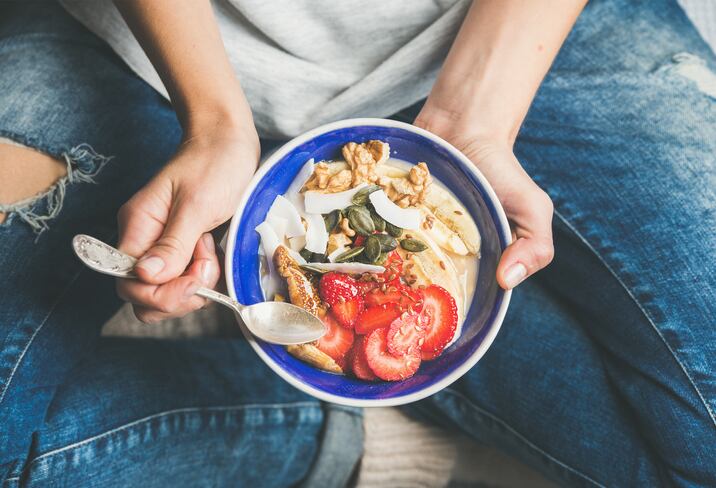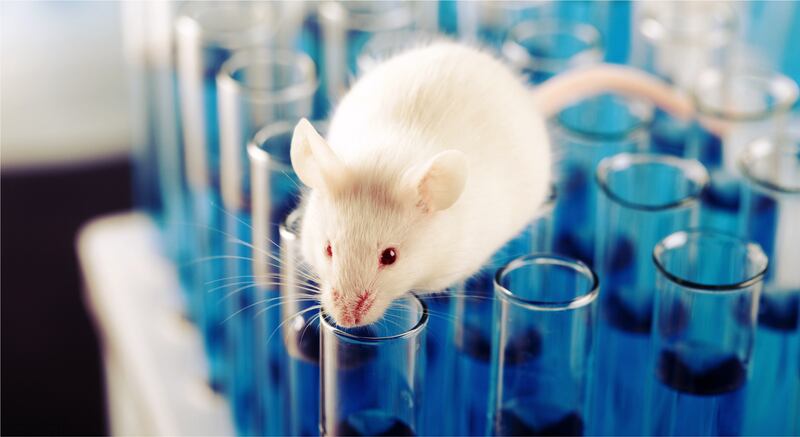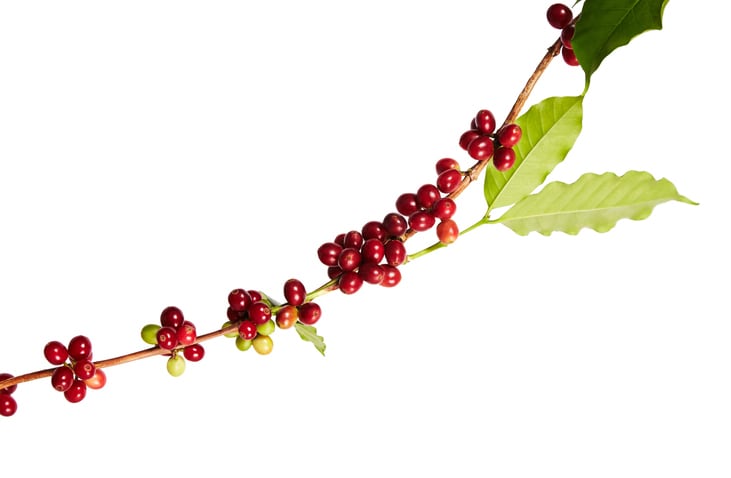A new study from San Diego State University has found that food could be used as a medicine to fine-tune the gut microbial flora so that it promotes the growth of beneficial bacteria within the gut.
The researchers found that some food increases the production of viruses called bacteriophages. Also known as phage, these viruses can keep the harmful bacteria levels low while promoting healthy bacteria.
Foods we commonly eat affect our gut microbiota. New research shows they do so by triggering the production of bacteriophage - viruses that infect and replicate inside bacteria. Compounds in these foods have an antimicrobial effect which causes the phage to replicate.
The study, published in Gut Microbes, began with researchers identifying several antimicrobial foods that could help increase the bacteria-eating viruses and thus possess antimicrobial properties. The team looked at several types of foods and prepared a list of foods that could provide this benefit.
The researchers noted that normally a growth of bacteria exists which reaches a stable population level and then the growth plateaus. However, researchers found that as the level of the viruses increased within the gut, the levels of the bacteria dropped until they were completely eliminated from the gut.
Food as medicine
"The microbiome is composed of hundreds of different bacteria and the phages they host," said Lance Boling, an SDSU molecular biologist and research associate. "We could actually tackle certain conditions by adjusting the foods we consume, that will affect microbial diversity which in turn will influence health and diseases."
Honey, licorice, stevia, aspartame, hot sauce, herbs such as oregano, spices such as cinnamon and clove, rhubarbs, Uva ursi (bearberry), neem extract and even toothpaste were all tested due to their antimicrobial effects. Once the researchers narrowed down the foods with antimicrobial effects, they then selected two major gut phyla bacteria, Bacteroidetes and Firmicutes, including strains of pathogenic as well as beneficial bacteria.
A total of 28 food items were found to have antimicrobial properties. Of these, honey, stevia, aspartame, neem and Uva ursi had the most significant impact in triggering phage production.
"This shows we could sculpt the human gut microbiome with common dietary compounds," said Forest Rohwer, an SDSU microbial ecologist and pioneer of viromics research. "The ability to kill specific bacteria, without affecting others, makes these compounds very interesting."
"There aren't many known chemical triggers, and we wanted to find these 'prophage' inducers - or what causes the phage DNA to detach and replicate," said Boling.
While other studies have focused on increasing the abundance of therapeutic phages, this research goes further to explore the reductive effect of 117 commonly consumed foods, chemical additives, and plant extracts on the growth and phage production capacity of common gut bacteria.
‘Landscaping’ the gut
Boling said this research is "akin to pulling weeds from a garden so that more desirable plants have room to grow," and added that the research team also found some foods that acted as phage inhibitors and in the future could be used to control pathogenic viruses.
“We are excited about finding more prophage inducers and determining the molecular mechanisms by which they work," Rohwer said. "There are probably thousands of compounds that would be useful for eliminating unwanted bacteria."
The researchers recommend that foods found to be prophage inducers be studied further to better understand how bacteria and phage shape the ecosystems in which they populate.
Probiota 2020
The rapidly evolving universe of probiotics, prebiotics and the microbiome will be propelled into the new decade at the upcoming Probiota 2020 summit in Dublin on February 10-12.
From advances in microbiome research, to start-up game changers, key market stats, crucial clinical science and regulatory knowledge, attendance is a must-have for those in the prebiotic, probiotic and microbiome sectors.
Will you be joining your peers in one of the world’s greatest cities?
Source: Gut Microbes
13 Jan 2020 https://doi.org/10.1080/19490976.2019.1701353
“Dietary prophage inducers and antimicrobials: toward landscaping the human gut microbiome”
Authors: L. Boling, et al.




